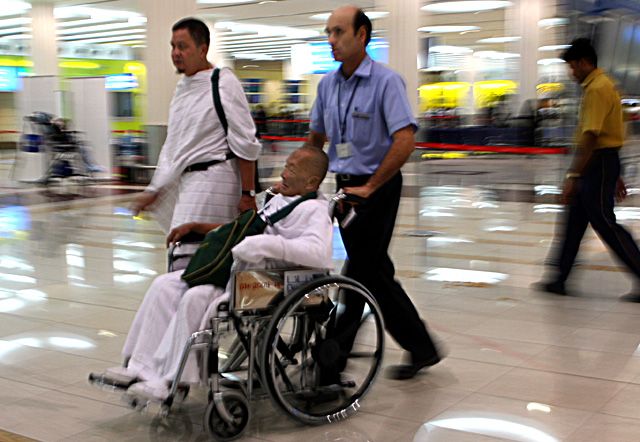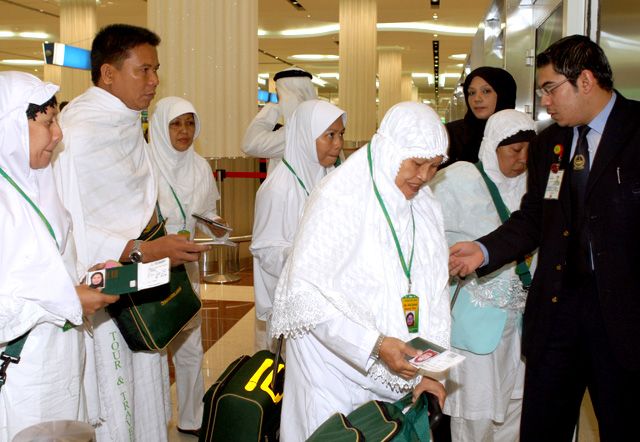Four Haj pilgrims have died of the H1N1 flu virus days before the annual pilgrimage begins in Saudi Arabia.
The Ministry of Health in Saudi Arabia said all four pilgrims who died were foreigners, media reports said.
Three of the victims – a woman from Morocco and men from Sudan and India – were in their seventies, BBC Online reported quoting Saudi health officials. The fourth was a 17-year-old girl from Nigeria, it said. The Health Ministry also said that none of the four foreign victims had been vaccinated against the H1N1 virus.
An official statement released by the ministry said all had underlying health problems, including cancer and respiratory illness. Three of the victims died in Madina and one in Makkah, according to the BBC.
An estimated three million Muslims perform Haj every year, including up to two million who travel from abroad. Haj rituals this year will start on Wednesday, November 25.
The Ministry of Health in Saudi Arabia has advised all Saudi residents intending to perform Haj that they should receive the H1N1 vaccine by Sunday, November 22.
According to the Saudi Gazette, the Ministry of Haj, in a statement addressing Saudi nationals and foreign residents, said the vaccine was available at all ministry facilities. The statement was preceded by another announcement that the effects of the second wave of swine flu had begun to be noticed from the beginning of October, with a 50 per cent increase in the numbers of registered cases in the Kingdom.
Saudi Arabia has recommended that those over 65 or under 12, those who are sickly and women who are pregnant should not perform Haj this year because of concerns about catching and spreading the flu.
GlaxoSmithKline and Sanofi-Aventis are among some 25 companies producing pandemic vaccine and other drugmakers including Switzerland's Roche Holding are making antivirals for use as a frontline H1N1 drug.
According to the World Health Organisation’s latest death toll, which is thought to underestimate the total spread of the virus, at least 6,750 people worldwide have died as a result of an H1N1 infection since its discovery earlier this year in Mexico and the United States.














